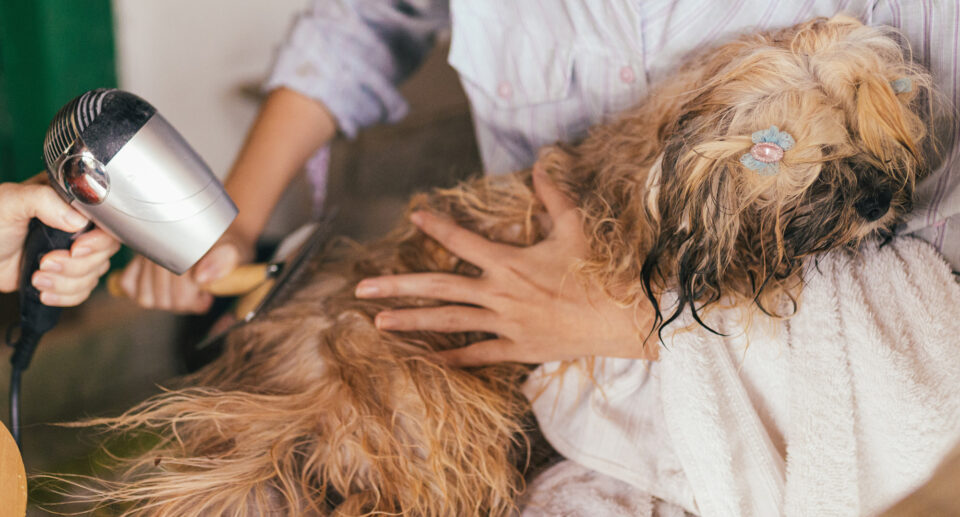Calming Noise Anxiety in Dogs

With such sensitive hearing, it’s no wonder that pets have noise anxiety. The symptoms of noise anxiety include hiding under furniture, shaking, barking or meowing, chewing, digging, urinating, and pacing, just to name a few.
Although any type of noise can frighten pets, thunder, fireworks, gunshots, and sirens are the main culprits. If your dog or cat has noise anxiety, there are ways you can help him or her feel more at ease.
Find a safe place
When noise happens, your pet wants a safe place to hide. A safe place could be a room, closet, or anywhere in your home where he or she can relax. Some owners find it helpful to use a crate for their pet when he or she is feeling anxious. Crates can give your pet a small, comfortable spot that’s his or her own. Pad your pet’s crate with blankets and even pillows for an even cozier feel. Some pets also like to have a thin sheet or blanket placed over the top of the crate to give an even bigger sense of safety. Leave the front of your pet’s crate open; this will allow proper airflow.
Be calm
Some pets react to their pet parents’ feelings when thunder, fireworks or other noises occur. It’s important to stay calm and treat your pet normally during noisy situations. Talk to your pet with a soothing voice and let him or her know that everything is OK by saying “it’s OK” or just giving a reassuring pat.
Try the natural approach
Sometimes pets just need an extra bit of help for noise anxiety. Luckily, there are some natural products like a calming collar that uses pheromones to calm pets, homeopathic remedies, and even a shirt, called the Thundershirt that your pet can wear that feels like a constant hug. All of these products are 100% natural and have been proven to help pets with noise anxiety symptoms.
Consult your vet
For pets with severe noise anxiety, it’s recommended that you speak to your veterinarian. Your vet can tell you what may be the best course of action for your dog or cat. He or she may prescribe an anxiety medication for your pet. Pet anxiety medications like Clomicalm and hydroxyzine pamoate, can reduce aggressive and obsessive behaviors that often occur when pets are stressed.





